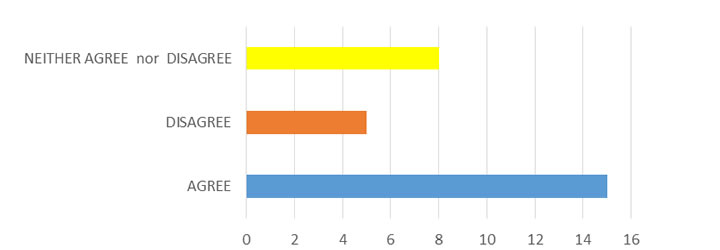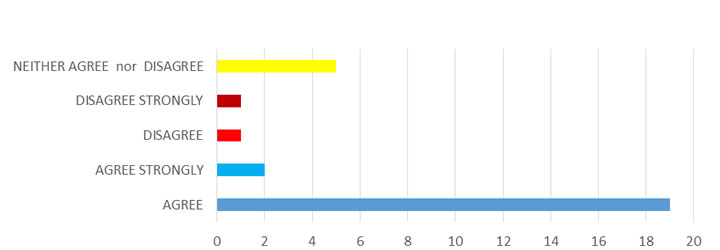 A a survey of leading wellbeing researchers from around the world finds that more public holidays would be better for everyone, writes Paul Frijters.
A a survey of leading wellbeing researchers from around the world finds that more public holidays would be better for everyone, writes Paul Frijters.
On average, people are happier during festive seasons like Christmas and New Year celebrations. What’s more, increasing the number of mandatory public holidays would improve a country’s overall wellbeing. These are the consensus findings of a new survey from leading researchers on wellbeing from around the world. The wellbeing research group at LSE’s Centre for Economic Performance (CEP) is launching the World Wellbeing Panel with a ‘Christmas edition’, bringing together the views of economists, philosophers, psychologists and sociologists on the impact of public holidays on national wellbeing.
Twenty-eight experts participated in the first round of the monthly survey. The first question asks the professors whether they agree with the following statement:
Figure 1 – Do you think that populations on average have higher wellbeing during major festive periods like Christmas?

The overall results are clear: 15 agree, 5 disagree and the rest have no firm opinion, implying that on balance the panel agrees with the idea that individuals are happier during the festive seasons. Yet no one strongly agrees or disagrees and several agree or abstain while acknowledging that the evidence on this issue is scarce, conflicting or unknown to them (Anna Alexandrova and Arie Kapteyn).
Some proponents – including Richard Easterlin, John Helliwell and Ruut Veenhoven – think that Christmas brings a more positive mood and temporary happiness, but not overall life satisfaction. Elizabeth Dunn notes that research on 11 European countries actually suggests that mood is lower around Christmas time, though a bit higher in the United States.
Ada Ferrer-i-Carbonell and Paul Frijters both point to US Gallup data, which show improved levels of wellbeing in the week of Christmas relative to preceding or following weeks, as measured by the ‘ladder of life’ question, which asks respondents to put themselves on a scale of the worst possible life to the best one.
On the positive side, Peter Singer expresses the consensus expectation by suggesting that Christmas sees increased social interactions, gift-giving and a break from normal routine. Such reasons are also given by Leonardo Becchetti, Daniel Benjamin, Esteban Calvo, Jan-Emmanuel De Neve, Jan Delhey, Bruno Frey, Dan Haybron, Ori Heffetz, Andrew Leigh and Ruut Veenhoven.
Mariano Calvo, Shigehiro Oishi and Heinz Welsch mention the stresses of Christmas, such as preparing food, buying gifts and having to engage in social interactions, which is not pleasant for everyone. In that regard, Nick Powdthavee refers to research showing that the number of cardiac arrests rises during Christmas, with two professors from Latin America (Mariano Rojas and Wenceslao Unanue), one from Europe (Martin Binder) and one from Canada (Chris Barrington-Leigh) noting the costs of gifts given at Christmas, which could lead to financial stress during the rest of the year or unfavourable comparisons for those too poor to keep up.
In terms of evidence, Alois Stutzer indicates that stress actually reduces in the United States around Christmas, suggesting that overall for Americans, who have far fewer holidays than people in Europe and Latin America, Christmas is a positive experience, with matters less clear elsewhere.
Andrew Clark, based in France, sums up his view on whether people have higher wellbeing at Christmas: ‘Probably most people. Stresses the hell out of me though.’
The benefits of more mandatory public holidays
Figure 2 – Do you think on balance that average wellbeing would rise if there were more mandatory public holidays in your country?

Here, the results are even more pronounced, with 21 agreeing and only 2 disagreeing and with two in strong agreement (Chris Barrington-Leigh and Mariano Rojas) and only one in strong disagreement (Richard Easterlin).
What reasons do the panel give for supporting a policy of more public holidays? The main one is that people work too much in our societies and would benefit from more leisure time.
Elizabeth Dunn speaks of holidays giving us greater ‘time affluence’ and both Chris Barrington-Leigh and Paul Frijters point to the collective action problem that individuals will keep working if others keep working, implying that mandatory holidays help to break the overworking aspect of the rat-race. Similar reasons are given by Leonardo Becchetti, Esteban Calvo, Bruno Frey, Shigehiro Oishi, Mariano Rojas, Alois Stutzer and Ruut Veenhoven.
Only Heinz Welsch from Germany thinks that it would be bad in his country because they already have so many holidays there. While a few professors based in France and the United States are on the fence (Andrew Clark, Ori Heffetz, John Helliwell and Arie Kapteyn), the vast majority in the United States and Europe think that the trade-off between more leisure versus less production is worth it (Anna Alexandrova, Daniel Benjamin, Jan-Emmanuel De Neve and Ada Ferrer-i-Carbonell).
Again, the main stated evidence comes from the US Gallup survey, which, according to Ada Ferrer-i-Carbonell, shows that people are happiest during the holidays. She quotes a study by economists Alberto Alesina and colleagues in 2005, which compares people in different countries and finds higher levels of wellbeing in those with more mandatory vacations.
Featured image credit: Holidays, by Jim Lukach, under a CC-BY-2.0 licence
The results of the World Wellbeing Panel survey on wellbeing and public holidays are available here. The experts, their affiliations and their responses to the Christmas edition of the survey are here. This article originally appeared at LSE Business Review.
Please read our comments policy before commenting.
Note: This article gives the views of the author, and not the position of USAPP– American Politics and Policy, nor of the London School of Economics.
Shortened URL for this post: http://bit.ly/2ip1Eg7
______________________
 Paul Frijters – LSE Centre for Economic Performance
Paul Frijters – LSE Centre for Economic Performance
Paul Frijters is the newly arrived director of the Wellbeing Programme at LSE’s Centre for Economic Performance, taking over from Professor Richard Layard. Paul also heads the World Wellbeing Panel. He did his PhD on welfare and wellbeing in Russia, after a Masters in Econometrics. He has worked in a variety of roles on very different problems, such as urban-to-rural migration in China (where he headed a large international research program), corruption, applied econometrics, and wellbeing. He was voted ‘best economist under 40’ by the members of the Economic Society of Australia in 2009-2011. His works have been discussed in the New York Times, Washington Post, the BBC, etc.



